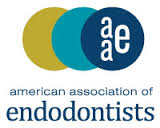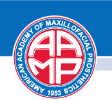Everyone has a favorite indulgence, whether it’s mint chocolate chip ice cream, a bag of potato chips or a juicy steak. But most people think their dietary choices only affect their waistline. Dentists want you to realize the impact what you eat has on your teeth, as well. For better or worse, the choices you make about what to put on your plate, affect more than just your pant size. Even some seemingly smart options can be bad news for the enamel of your teeth. That’s why it’s important to educate yourself about the role your diet plays in your dental health, along with seeking regular preventive dentistry services. Most things are fine in moderation, but it sure helps to know how the foods you eat – and enjoy – affect your smile!
Sugar Isn’t the Only Threat to Your Dental Health
Sugar is most often considered the enemy when it comes to caring for your teeth. That’s because it’s the leading cause of cavities. But sugar isn’t the only source of concern, as far as your dentist is concerned. Here are some other common problem foods, and why your teeth would appreciate you stop eating them, or at least cut back.
Citrus fruits – Who doesn’t love a good orange? Citrus can be a great part of a nutrient-rich diet. Unfortunately, your enamel isn’t the biggest fan of acidic foods, like citrus. Eat citrus fruits sparingly, and consider having them as part of an entire meal, to help limit how long the fruit stays on your teeth between brushings.
Hard candies – Next time you’re offered a lollipop, think twice before you take a big bite. Hard candies, even those low in sugar, can still be problematic for teeth. That’s because when you bite into them, you run the risk of damaging your teeth. (The same goes for ice. It may be low calorie, but it’s definitely not easy on your smile!)
Sticky foods – Often in the form of sweets, sticky foods are especially dangerous for your teeth. That’s because they’re likely to remain on your teeth longer than other snacks, prolonging their potential to damage your enamel.
Think Before You Drink
What do coffee and beer have in common? Both can cause you to become dehydrated, and also to have “dry mouth.” When you don’t have enough water or saliva to keep your mouth moist, you increase your risk of tooth decay, and infection. If you do enjoy caffeinated or alcoholic beverages, do so in moderation, and always followed up by plenty of water. You should also avoid overly sweet additions to your beverages, as this feeds the bacteria that cause plaque!










